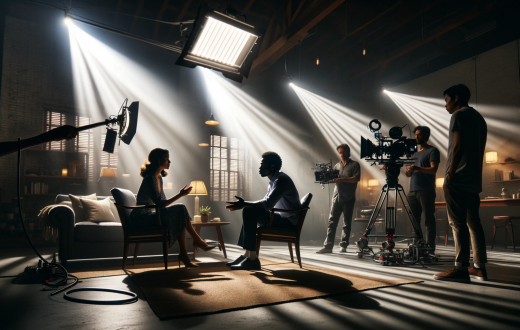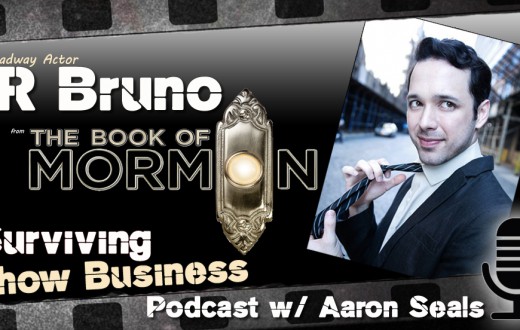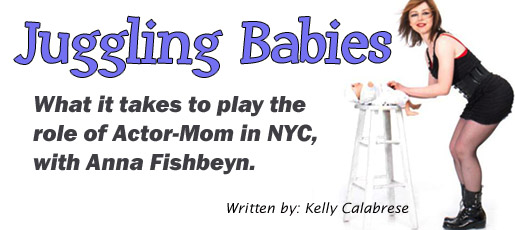As actors we deal with a lot of pressures that people in the ordinary working world don’t have to worry about. For instance, if you work in a cubicle you can kind of lay low and hide out if you’re having an off-day. Not so if your job puts you in front of a camera or on a stage in front of hundreds of people.
But one thing we don’t have to deal with that your typical office worker is subjected to is performance reviews. The dreaded quarterly sit-down with a supervisor to list all your accomplishments and failures is something no one in their right mind enjoys.
On the other hand, one thing actors can do that you don’t see in most offices is we can give ourselves performance reviews!
If you’ve never watched yourself perform on video you’re missing out on a great opportunity to self-critique and thus improve your craft. Unfortunately, for lots of actors, watching themselves perform is cringe-inducing to the point where they simply can’t take it. Much like when you hear a recording of yourself speaking, for some of us there’s something otherworldly and kind of creepy about watching yourself perform.
But the truth is simply that with so much video technology out there and with it being used in so many different ways–the proliferation of video auditions springs to mind, for instance–you simply can’t afford not to take advantage and use video to improve your craft. Here are a few tips for optimizing your experience and learning as much as possible from watching yourself perform on video.
1. You know you best
This is a double-edged sword. While someone else might not recognize it when you are a bit nervous or feeling less than one hundred percent confident for a moment, you almost certainly will. As they say, the first job of the actor is act is if he or she is at ease–acting like a calm, cool and collected actor is the first role we play every day. The problem with self-reviewing your video performances is you can recognize when you’re just ACTING confident versus when you’re actually feeling it. But one way to step outside of yourself as you watch is to focus on technical aspects of your performance. How is your speech, is it fluid and smooth? Or are you rushing your words? How is your movement–do you look relaxed or are you stiff and uncomfortable-looking? The fix for these issues and others is three-fold: breathing, rehearsal, and experience. As you watch yourself on video, pay special attention to your breath. Breathing as we all know is at the heart of how we deliver lines. Is your breathing relaxed? Or do you look like you’re panting like a dog on a hot day? No matter how often you work on camera, there is still something about that focus being on you that can ramp up your breathing. Even an incremental increase in our respiration rate can make a big difference in how we read. Taking a few moments to really focus on your breath before your next taping session can really help. Also, keep in mind that confidence comes from certainty that you know what you’re doing. Physical awkwardness that isn’t a piece of a character is an indication of underconfidence. More rehearsals can often eliminate this problem–as can more experience! Which is of course easier to diagnose than to fix. However, there are plentiful opportunities to get yourself in front of a camera, even if it isn’t for a paying gig. Self-tape as often as you can, work with friends on their projects and yours–do whatever you have to do to get yourself in front of that camera as often as possible and you will see a difference.
2. Control issues
One big key for successfully reviewing your taped performances and using them to improve is to focus on what you can control, and find a way to let go of what you can’t. Yes, the lighting may be unflattering, you may have had a zit that day, your clothes may have been wrinkled. You’ve simply got to find a way to throw all that out and look at the acting work you were doing. What are the things you can actually fix? There can be tremendous confidence-building in getting past the things that are out of your control. Lawrence Fishburn has a gap in his teeth. Willem Dafoe is just strange-looking. Would you say these are unconfident actors due to these quirks? No way. And anyway it may well be that seeing your onstage or on-camera HABITS, not your physical traits may be the actual root of what’s bothering you anyway. We all have behaviors we do when we perform that fall under the same general category as what poker players call “tells.” If you see or hear vocal habits or habitual movements coming out across a variety of different performances as different characters, the good news is once you’ve identified them, you can control those things. And it’s actually a real good idea to try to control them too: we need to be fully in charge of our instrument when we perform–funny little twitches that are part and parcel of you the actor and not a character choice are a distraction. It’s a good idea to take notes and see what works in various takes, and then afterwards review them and use them to change what you were doing when you perform the piece again.
3. Get over yourself
This is only meant half facetiously, and the truth is, it’s a little easier said than done. But the point stands: you almost need to approach watching yourself on video from the standpoint of watching another actor. You’re here to clinically examine the performance, not obsess on whether you’ve gained weight, or if your teeth aren’t as white as you’d like them to be or you were having a bad hair day. The thing is, you are going to be seeing things that no one else notices, and which no one else would ever notice in a thousand years. Focus on the work as if you were a casting director watching a performance by an auditioning actor. What advice would you give this actor? Are they relaxed, in control of their instrument, and confident? What works and what doesn’t about their performance?
The bottom line is getting yourself on tape and really examining your performances is something that gets easier to do over time. Don’t sell yourself and your craft short by neglecting this valuable tool!







